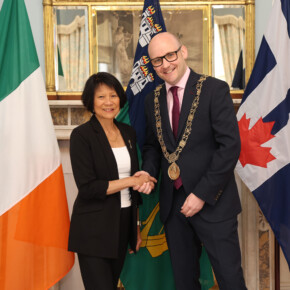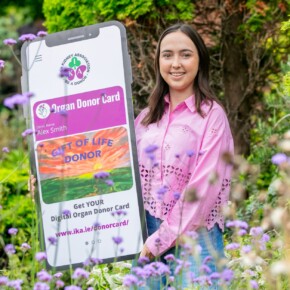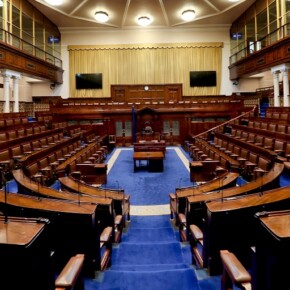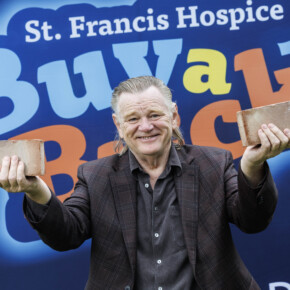Mother and her autistic son call on Department of Health to apologise after compiling a secret dossier on them
Padraig Conlon 28 Sep 2023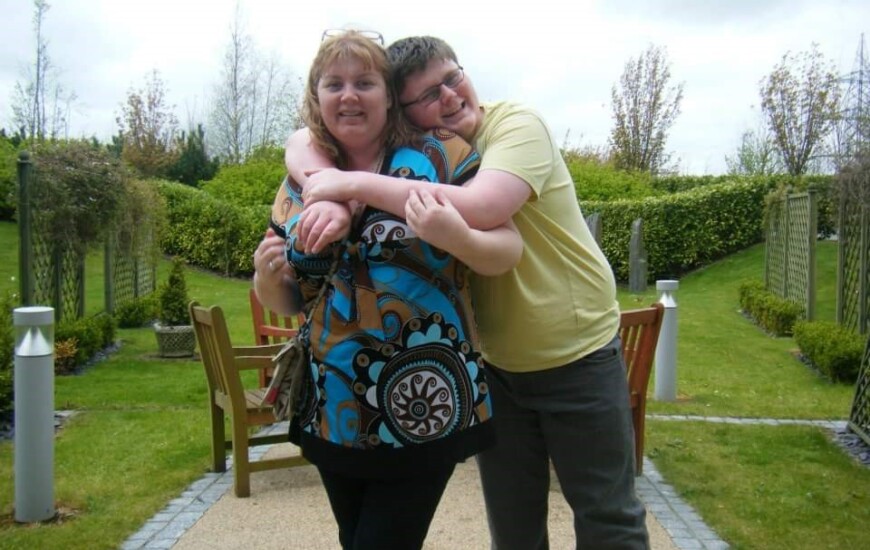
A mother and her autistic son who discovered that the Department of Health had been keeping a secret dossier on them have told RTÉ Investigates they have never had an apology despite the Data Protection Commissioner (DPC) ruling this summer that it amounted to serious interference, and which resulted in the DPC imposing a fine on the Department of Health.
Speaking publicly for the first time in an RTÉ Investigates report to be broadcast on Prime Time tonight at 9.35pm on RTÉ One and RTÉ Player, the family describe how the revelations have impacted on them.
When Adam Keogh was just 5 years old, his family had been among several families who took legal action against the State to secure special needs education for their children.
Their case was not for compensation but to secure special needs supports in primary school.
Adam got some supports and the case lay dormant.
But 12 years later the Department of Health continued to work on its legal strategy to manage the cases taken by the families.
Without telling the families or getting their consent, the Department of Health went to the HSE and asked for what it had on file on the dormant cases, including medical notes.
The sharing of their private patient information would have remained secret had it not been for a whistleblower in the Department of Health.
In 2020, Shane Corr a senior civil servant, realised he could see the families’ files.
Of greater concern to him was the fact that he could read everything that transpired in a private consultation between members of the Keogh family and their HSE doctor.
Shane Corr: “I saw something that frankly I can only describe as shocking. I saw an email from an official at the Department of Health to a doctor who is working for the HSE explaining that they were involved in litigation with one of her patients and asking for information from this doctor.
“There was no way once I saw the piece of correspondence from the Department saying, ‘we’re asking for information from you about a child but we’re not going to ask for consent to get it’, I was ever going to let that lie.”
The Department of Health had obtained documents which contained confidential and sensitive details from a consultation between the Keogh Family and their HSE doctor without the family’s knowledge or permission.
Senior civil servant Shane Corr tried to raise his concerns.
Then, in March 2021, he became a whistleblower and revealed to RTÉ Investigates that highly confidential information on the wellbeing of people and their families was shared, and stored, in departmental dossiers.
The information was to be used tactically to decide the most opportune time to settle or reactivate long-dormant High Court cases.
The people involved, who had been diagnosed with autism, had not been informed.
Neither had their parents.
Following Shane Corr’s disclosures and the RTÉ broadcast, the Department of Health said what had been done was part of normal litigation and was “entirely lawful, proper and appropriate.”
In an Oireachtas Health Committee on May 5, 2021, Sinn Féin TD David Cullinane raised the issue: “Some information of a very serious and sensitive medical and educational nature was being held on children, and that was being collected, in some instances without, in my view, the knowledge of the parents involved.”
Robert Watt, Secretary General of the Department of Health replied: “I am sorry, but the Deputy is now repeating once again allegations which are not true and which we have comprehensively addressed as being not true.
“We have set out more than 100 pages of documents that set out the position here, and what the Deputy has said is just not true.
“It is regrettable that motivation has been twisted in a way to suggest something untoward was being done by officials, when they were trying to close cases which have gone on for too long and in which it was in the interest of all parties that they be closed.”
He also told the Oireachtas Health Committee that on the eve of the RTÉ Investigates report he sought to intervene directly and called the then Director General of RTÉ.
“We did not believe the allegations were correct, and I set out why we did not believe they were, and that I did not think it was appropriate for RTÉ to make such serious allegations.”
RTÉ however broadcast the report as planned.
After the broadcast, Robert Watt personally wrote to those who were potentially impacted to reassure them that the information was “consistent with, and typical of, the sort of information which arises” in litigation.
He said Shane Corr’s disclosures had already been examined and there “was no basis to suggest wrongdoing”.
But separately the Data Protection Commissioner had begun its own inquiry.
Just one week after the RTÉ broadcast, the DPC went into the Department of Health to see did the files reported on actually exist.
This summer the Data Protection Commission’s decision was published.
The report says the Department’s practices were excessive, lacked transparency, and had no clear policy.
The DPC report also criticised the level to which people in the Department of Health, with no involvement in litigation, could access the electronic files.
Tony Delaney, Deputy Data Protection Commissioner: “Our decision says unlawful things happened from a data protection perspective. They broke the law, they’ve been penalized for it, they’ve been reprimanded for it.
“There’s a ban on processing which took immediate effect.
“The Department got caught out very badly in this case, but others could be doing the very same thing today.
“And that’s why they all need to take stock.”
The Department of Health has issued a statement which said it accepted that “the Department did infringe data protection law by asking broad questions that resulted in the Department receiving sensitive information about the private lives of plaintiffs and their families.”
One of the worst aspects for the Keoghs was that the information was being shared even though there is no point to the original High Court case anymore.
Adam Keogh, now aged 22, said: “They were still gathering information when I was finishing secondary school, and the case only covered primary school.
“They had no reason to research anything past primary school, and they didn’t even have the justification to do what they did back then.
“But what they did once the case boundaries had expired, was horrific.
“They had no reason to do it because there was no case then anymore.”
After reading the Data Protection Commissioner’s report, the Keoghs feel there now needs to be accountability from those who defended the practice.
Adam’s mother Sharon Keogh: “When you have a child with different abilities, everything is a struggle.
“It’s made difficult in terms of diagnosis, it’s difficult in terms of getting extra payments like disability allowance, carers allowance, anything you need to provide for your child.
“It’s impossible to get speech and language, physiotherapy, all those things.
“You have to fight for everything.
“I have a daughter refusing to see doctors now.
“She went without care for a long time because of it.
“I never got an apology.
“And nobody else got an apology.
“Nobody got an apology.”
Watch RTÉ Investigates report tonight, Thursday 28 September at 9.35pm on Prime Time, on RTÉ One and RTÉ Player.


